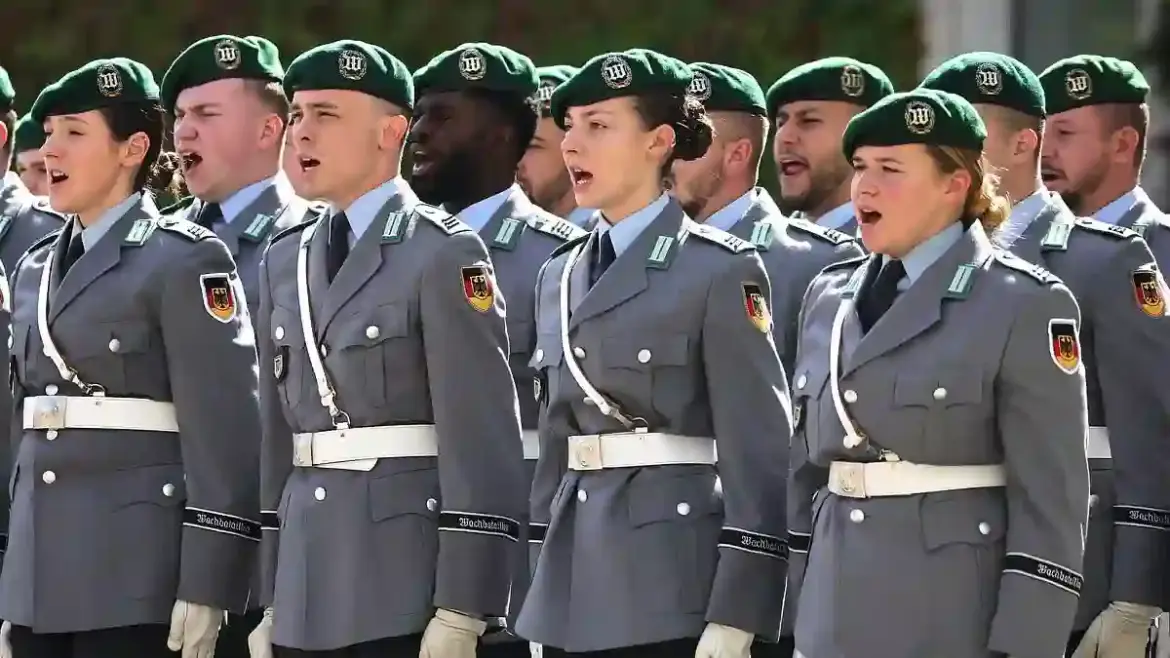Germany is contemplating a return to compulsory military service for the first time in more than a decade, driven by growing concerns about Russia’s potential threats to NATO territory.
Chancellor Friedrich Merz has unveiled an ambitious plan to strengthen the German armed forces, signaling that conscription could be reinstated if voluntary recruitment efforts fail.
Cabinet Approves Sweeping Defence Proposal
The plan, approved by the cabinet on Wednesday, represents Germany’s most significant step toward reintroducing national service since conscription ended in 2011.
Officials cite a pressing need to bolster the country’s defences, warning that Russia continues to build the military capacity needed to attack NATO territory in the coming years.
The draft legislation states: “Russia will remain the greatest threat to security in Europe for the foreseeable future and isreating the military personnel and material prerequisites to be able to attack NATO territory within a few years.”
New Procedures for Young Germans
Under the proposal, all men turning 18 from next year will be required to complete a detailed questionnaire assessing their fitness and willingness to serve in the Bundeswehr, Germany’s army.
Women will have the option to participate voluntarily.
By 2027, medical examinations will also be mandatory for men, allowing the government to act quickly if full conscription becomes necessary.
The bill explains: “If mandatory conscription for basic military service has to be activated, conscription data will already be available and will not have to be collected in this situation.”
Defence Minister Stresses Urgency
Germany’s defence minister, Boris Pistorius, emphasized the need to expand the Bundeswehr, saying: “The international security situation, especially Russia’s aggressive behaviour, demands this.
” The government plans to grow the armed forces from roughly 180,000 troops to 260,000, with a significant increase in reservists.
Currently, the military expects to recruit just 15,000 new soldiers this year, far below the target.
Pistorius added: “We need not just well-equipped forces… we also need a Bundeswehr that is strong in terms of personnel.
Only then is deterrence toward Russia really credible.”
Investments and Recruitment Challenges
Since Russia invaded Ukraine in 2022, Germany has invested billions in modernizing its military, including establishing a €100 billion special fund and loosening budget rules to allow for additional spending.
Chancellor Merz aims to make the Bundeswehr “the strongest conventional army in Europe.”
However, the end of compulsory service in 2011 left recruitment challenging.
The new plan seeks to make military service more appealing through better pay, short-term enlistments, and flexible training programs.
Merz emphasized: “Our aim is to make military service more attractive and bring in more young people to serve in the Bundeswehr.
If we determine that we need to make adjustments, we will do so.”
Voluntary Service May Not Be Enough
Even with these incentives, Pistorius acknowledged that voluntary participation might fall short.
Polls indicate six in ten Germans would support conscription if the army cannot meet its recruitment targets, but most people aged 18 to 29—the group most affected—oppose it.
Only 16 percent of Germans said they would definitely fight if their country were attacked.
Those who object to military service would be able to perform civilian duties, such as hospital work or emergency response, as in previous years.
Protests and Political Debate
The announcement sparked immediate reaction. Around 70 anti-war activists gathered outside a Bundeswehr careers centre in Cologne to protest.
Within Merz’s coalition, the Social Democrats expressed concerns, preferring voluntary enlistment.
Conversely, Markus Söder, leader of the Christian Social Union, voiced full support for the plan, warning that appeals alone would not be enough: “I don’t think we are going to manage with these appeals by making the Bundeswehr a bit more attractive.
I think there won’t be a way past compulsory service… why wait if we already know today at least that the danger is there?”
NATO Briefing Reinforces Urgency
The cabinet decision followed a briefing from NATO’s supreme commander in Europe, U.S. General Alexus Grynkewich, who outlined the worsening security situation and the pressing need for Germany to prepare for potential threats.
Germany now faces the delicate task of balancing national security needs with public sentiment as it considers reintroducing conscription for a new generation.



